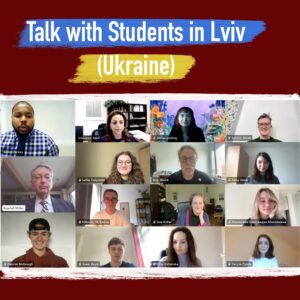
One week ago, our students had the chance to talk with four Ukrainian students from Lviv via Zoom. The talk was facilitated by Dr. Randall R. Miller, Senior Consultant to the Chancellor of the Wayne County Community College District, with the support of the Chancellor of WCCCD and Bob Wood, Professor at the Catholic University in Lviv, in cooperation with our program. Four Ukrainian students, Sofiia, Olha, Kassandra, and Yaryna shared their experiences with studying in a war-torn country. Our Dickinson-in-Bremen students shared their thoughts after the talk:
“What struck me most was the normalization of the students’ experiences. Much like many people in the west have likely grown numb to seeing updates about the war in Ukraine in the news, the Ukrainian students and their professors no longer react to air sirens like they did at the beginning. It’s heartbreaking that Ukraine has been exposed to war for so long that it has settled into daily life like any other routine.” (McKenna Hillman)
“The part that stuck with me most about hearing the Ukrainian students speak is how they have had to get used to so many horrific things. The students discussed their daily lives as consisting of daily bomb threats and sirens, frequent reminders of the fallen, general fear for loved ones, and an inability to make plans for the future. At the same time, it took them time to articulate what living in a war is like, often iterating that it just feels like normal life now.” (Abby Jones)
“It is a sobering experience to listen to current students of University in the country of Ukraine. They are similar to my peers and I, with the responsibility of school and their personal lives. But they live in constant fear of violence, whether it be inflicted on them or their family or their friends.” (Riley Robinson)
Learning about how life amidst a war has been normalized to a degree through these students was both fascinating as well as deeply concerning. I was particularly struck by the students’ description of their current reactions to air raid sirens as opposed to when the war was just beginning as well as some University classrooms doubling as bomb shelters. I recall one student saying she sometimes didn’t even react to bomb warnings and simply stayed in her apartment because it had become a normal part of her life at this point. (Grear Boyd)
“The meeting with Ukrainian students really demonstrated the reality of the impacts of the war, the day to day impacts on individuals are covered less by the international media so it was interesting to hear their perspectives, especially about continuing their lives with a semblance of normalcy amidst the chaos and terror of war.” (Gabe McGough)
Afterwards, the Dickinson students as well as the students from Ukraine had the opportunity to attend a talk by Dr. Ludwig, titled: “The War in Ukraine explained. An Update after Two Years,” which was followed by a Q&A session.
“While I found many aspects of Dr. Ludwig’s Ukraine talk interesting, I was particularly intrigued by her explanation of the role that social media continues to play in the ongoing conflict both on Russian and Ukrainian sides. Specifically, Russian use of misinformation to continue to justify aggression towards Ukraine was of interest. Yet, as I have seen these videos myself on my personal social media accounts, I was particularly captivated by the discussion of Ukrainian use of popular media platforms to spread awareness of inadequacies of the Russian military in order to both rouse international support for their defense efforts and to promote national morale.” (Grear Boyd)
“I found both our conversation with the students from Lviv and Dr. Ludwig’s talk incredible. Not only did I get to talk with students, folks my age, experiencing the war first hand as their day to day, I got to understand the war, tactics and its current status much better than I ever would have. I think what struck me most was how normalized war was for the Ukrainian students – one girl apologized for being so tired, as there had been air raid sirens all night and she had classes in the morning, in the same tone I might complain about the weather.” (Noah Salsich)
The morning after these talks, Russia launched massive drone and missile strikes on Ukrainian cities – the largest airstrike on its energy infrastructure so far in the last two years of this war.

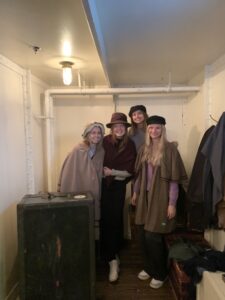
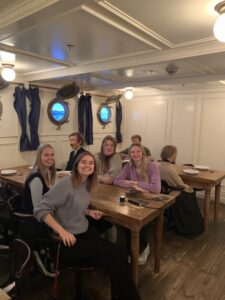
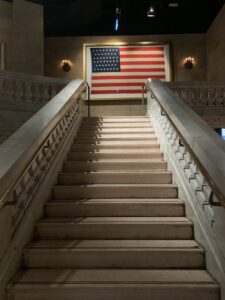
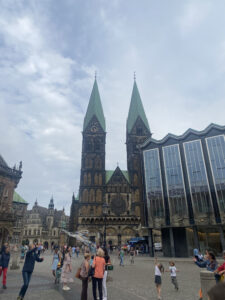 When I was picking which college to go to my senior year of high school, I knew studying abroad was a huge factor in my decision. Ultimately, I landed on Dickinson, which has great study abroad programs all over the world. Before I started school, I went to Germany in 2019 with my host family and fell in love with the country. After I returned to the U.S., I knew I wanted to come back. When I found out Dickinson had a program in Germany, I was ecstatic and had a feeling that when Junior spring came around, I would be back in the country that I grew to love.
When I was picking which college to go to my senior year of high school, I knew studying abroad was a huge factor in my decision. Ultimately, I landed on Dickinson, which has great study abroad programs all over the world. Before I started school, I went to Germany in 2019 with my host family and fell in love with the country. After I returned to the U.S., I knew I wanted to come back. When I found out Dickinson had a program in Germany, I was ecstatic and had a feeling that when Junior spring came around, I would be back in the country that I grew to love.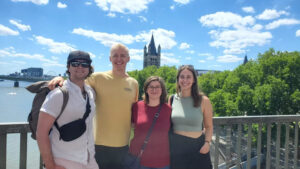 both Aristoles and Goethe Institute learning the language. This was because almost all of our classes at the University of Bremen were in German. After becoming proficient in German, we began our classes. Three of my classes were business related and one was Political Science related. They were all super interesting and gave me a different perspective on how higher education is in Germany and different viewpoints. All in all, I had a great learning experience in Germany.
both Aristoles and Goethe Institute learning the language. This was because almost all of our classes at the University of Bremen were in German. After becoming proficient in German, we began our classes. Three of my classes were business related and one was Political Science related. They were all super interesting and gave me a different perspective on how higher education is in Germany and different viewpoints. All in all, I had a great learning experience in Germany.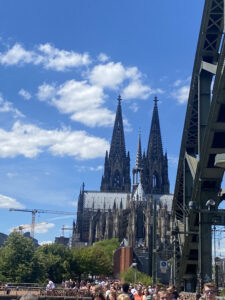 Lastly, learning about the culture and trying new foods was a highlight. Having Doner Kebab, Wiener Schnitzel, and Wurst was awesome. Everything was delicious! Trying different things, playing new games, and experiencing the culture from a first-hand experience were amazing. The Dickinson in Germany study abroad experience is one I will never forget. I was able to try so many different things and get to meet and see so many friends! I liked it so much, that I am currently applying for a Fulbright Grant to be an English Teaching Assistant in Germany. I can’t wait to come back to visit. Till next time Germany!
Lastly, learning about the culture and trying new foods was a highlight. Having Doner Kebab, Wiener Schnitzel, and Wurst was awesome. Everything was delicious! Trying different things, playing new games, and experiencing the culture from a first-hand experience were amazing. The Dickinson in Germany study abroad experience is one I will never forget. I was able to try so many different things and get to meet and see so many friends! I liked it so much, that I am currently applying for a Fulbright Grant to be an English Teaching Assistant in Germany. I can’t wait to come back to visit. Till next time Germany!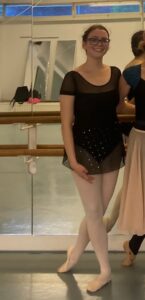 students to take for a relatively low price. Dickinson will also reimburse you up to a certain amount to take these courses. You can see a list of past/current course offerings on their
students to take for a relatively low price. Dickinson will also reimburse you up to a certain amount to take these courses. You can see a list of past/current course offerings on their 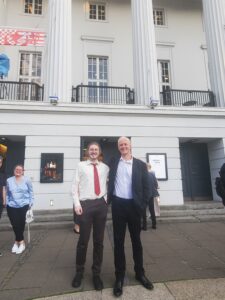 classic German musical play “Die Dreigroschenoper” (The Threepenny Opera), written by Bertolt Brecht with music composed by Kurt Weill and first performed in Berlin in 1928. This was our first time attending a theatrical performance in Bremen. Having only read a brief synopsis of the narrative beforehand, we came to find that the production was much less of what one might expect from an opera but rather a musical supported by a modestly sized jazz ensemble (with no conductor!). I wouldn’t call myself an avid musical goer, but I was enthralled by the lively assortment of characters and fantastic music.
classic German musical play “Die Dreigroschenoper” (The Threepenny Opera), written by Bertolt Brecht with music composed by Kurt Weill and first performed in Berlin in 1928. This was our first time attending a theatrical performance in Bremen. Having only read a brief synopsis of the narrative beforehand, we came to find that the production was much less of what one might expect from an opera but rather a musical supported by a modestly sized jazz ensemble (with no conductor!). I wouldn’t call myself an avid musical goer, but I was enthralled by the lively assortment of characters and fantastic music. I was stunned by the singing voices of Polly and Macheath, whose dialogue and ballads easily stole the stage whenever they appeared. In between these moving scenes Evan and I couldn’t help but chuckle at every move of the corrupt chief of police “Tiger” who broke the fourth wall by having a short interaction with the drummer, breaking one of their cymbals. I also found it heartwarming that since it was the last performance of this production, the director bade thoughtful farewells to several cast members leaving the theater company. Later that evening I couldn’t help but hum ‘Die Moritat von Mackie Messer’ to myself.
I was stunned by the singing voices of Polly and Macheath, whose dialogue and ballads easily stole the stage whenever they appeared. In between these moving scenes Evan and I couldn’t help but chuckle at every move of the corrupt chief of police “Tiger” who broke the fourth wall by having a short interaction with the drummer, breaking one of their cymbals. I also found it heartwarming that since it was the last performance of this production, the director bade thoughtful farewells to several cast members leaving the theater company. Later that evening I couldn’t help but hum ‘Die Moritat von Mackie Messer’ to myself.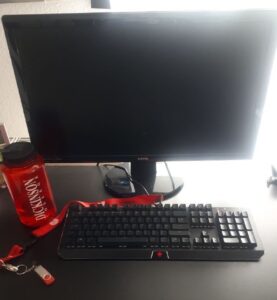
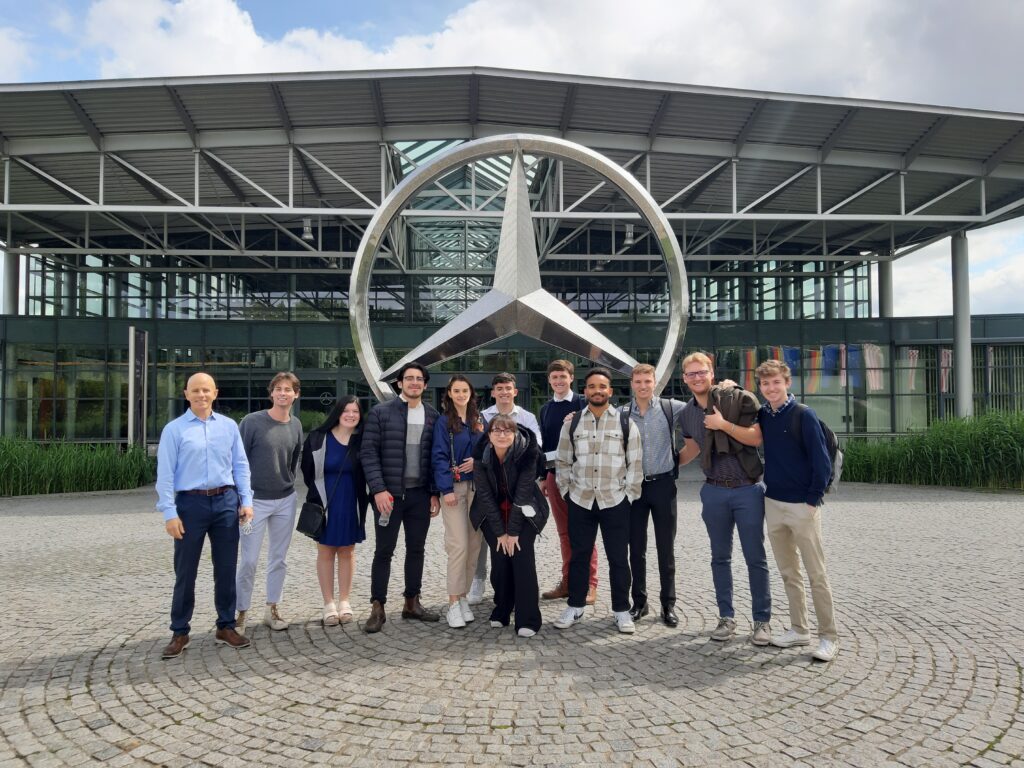
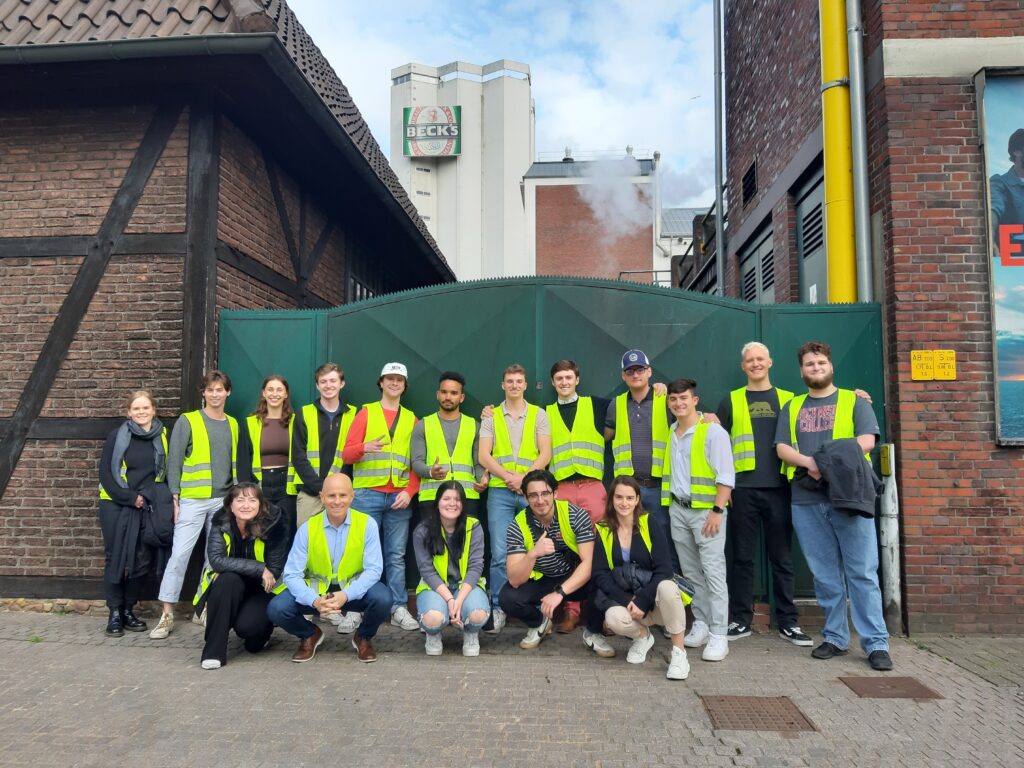
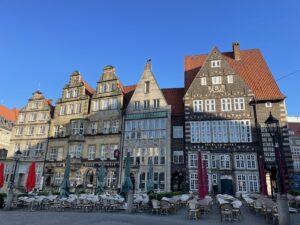
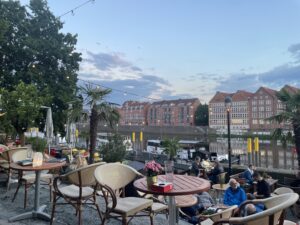 “I was initially very nervous about traveling to Germany. Not only had I never traveled out of the country, but I also didn’t know any German. Sophie’s expertise (an exchange student from Bremen University) calmed my nerves a bit, but I was still anxious about the trip.
“I was initially very nervous about traveling to Germany. Not only had I never traveled out of the country, but I also didn’t know any German. Sophie’s expertise (an exchange student from Bremen University) calmed my nerves a bit, but I was still anxious about the trip.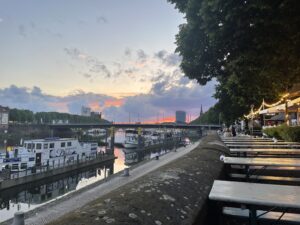
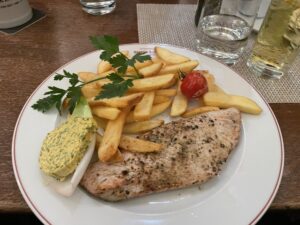 respectful manner.
respectful manner.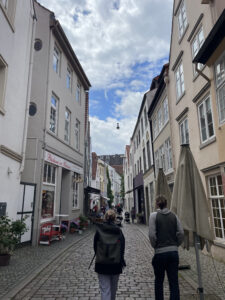
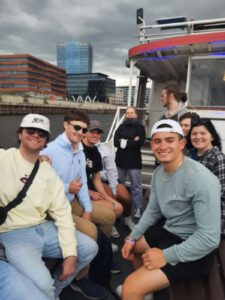
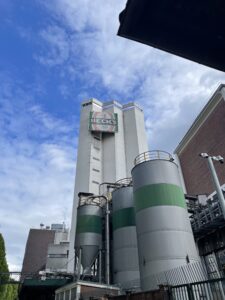
 At Dickinson, I’m majoring in International Studies and in German, but my experience out of the United States amounted to less than a week spent between Victoria in British Columbia and a jaunt across the New York-Canada border to see the Canadian side of Niagara Falls. Flying in and out of the Frankfurt airport represented the first and second international flights of my life.
At Dickinson, I’m majoring in International Studies and in German, but my experience out of the United States amounted to less than a week spent between Victoria in British Columbia and a jaunt across the New York-Canada border to see the Canadian side of Niagara Falls. Flying in and out of the Frankfurt airport represented the first and second international flights of my life.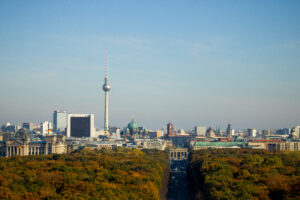 Oftentimes in city centers in Germany, if you sound like an American tourist, people will respond to you in English. However, I’m quite proud that the grocery cashiers and coffee shop baristas rarely switched from German when talking with me. I became confident enough with traveling by train and tram too, that, multiple times, I was approached with questions about directions and train arrival times and whether certain tickets worked with Deutsche Bahn or not. I usually stumbled through my German responses, but I always felt flattered that at least it seemed like I was from around there.
Oftentimes in city centers in Germany, if you sound like an American tourist, people will respond to you in English. However, I’m quite proud that the grocery cashiers and coffee shop baristas rarely switched from German when talking with me. I became confident enough with traveling by train and tram too, that, multiple times, I was approached with questions about directions and train arrival times and whether certain tickets worked with Deutsche Bahn or not. I usually stumbled through my German responses, but I always felt flattered that at least it seemed like I was from around there.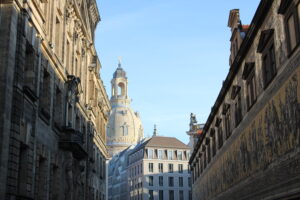 What I most appreciated about my time abroad, though, was the separation from my normal life and usual perspective on things. It was a double-edged sword, as I did find being away from my usual support system quite difficult, but I also learned about myself as I was able to view my life in the US from an almost third-person perspective. I thought a lot about how I’d ended up in Germany, how I’d become who I am, and what I want next from myself. In my classes, I learned about the last century of international relations from a German perspective, discussed the history of the relationship between Germany and the US, and examined the histories of immigration and the social welfare state within Germany.
What I most appreciated about my time abroad, though, was the separation from my normal life and usual perspective on things. It was a double-edged sword, as I did find being away from my usual support system quite difficult, but I also learned about myself as I was able to view my life in the US from an almost third-person perspective. I thought a lot about how I’d ended up in Germany, how I’d become who I am, and what I want next from myself. In my classes, I learned about the last century of international relations from a German perspective, discussed the history of the relationship between Germany and the US, and examined the histories of immigration and the social welfare state within Germany.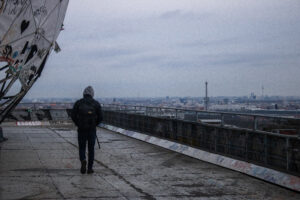 Throughout my time abroad, I took a bunch of photos and expanded my knowledge of popular German music. I also developed a closer relationship with my parents, despite being an ocean apart. I hosted my girlfriend, who I originally met in a German 101 course, for Christmas break, and showed her around Bremen and Heidelberg. And, lastly, I learned how to wear a scarf properly, bought a turtleneck, and once walked over an hour from the city center to my WG in the dark with my roommates after we accidentally missed the last tram of the night.
Throughout my time abroad, I took a bunch of photos and expanded my knowledge of popular German music. I also developed a closer relationship with my parents, despite being an ocean apart. I hosted my girlfriend, who I originally met in a German 101 course, for Christmas break, and showed her around Bremen and Heidelberg. And, lastly, I learned how to wear a scarf properly, bought a turtleneck, and once walked over an hour from the city center to my WG in the dark with my roommates after we accidentally missed the last tram of the night.